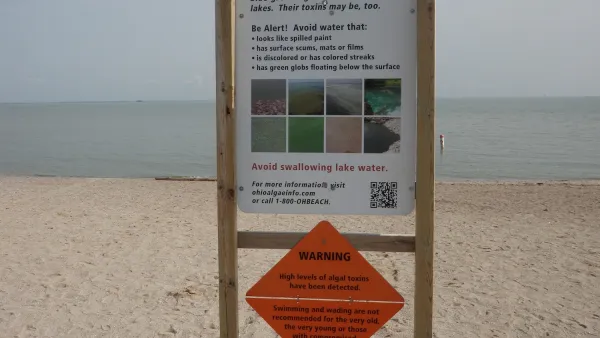Water is predicted by many to be the reason for future conflicts. But are water wars really in our future? SEED magazine asks a panel of experts.
"Now, in UNESCO's third major World Water Development Report, released in March at the World Water Forum in Istanbul, the threat is again plainly stated: 'As climate change and adverse water impacts increase in politically charged areas, conflicts will likely intensify, requiring new and rapid adaptive security strategies.'
Not everyone, however, is convinced that 'water wars' are all they're chalked up to be. In a March 19 essay in Nature, Wendy Barnaby contends, 'Countries do not go to war over water, they solve their water shortages through trade and international agreements.'
According to Barnaby, global trade in 'virtual water'-the water embedded in food products-allows arid countries like those in the Middle East to meet their water requirements without resorting to conflict."
"...As senior government officials convene later this year for World Water Week in Stockholm, how should they be approaching the issue of 'water wars'? Are they an imminent threat or, as Barnaby suggests, a fabrication unsupported by the facts and perpetuated by the media?"
Seed Magazine asks the experts:
* Mark Zeitoun, environmental engineer
* David Hatton, Australia's "water czar"
* Fred Pearce, environmental journalist
* Tobias Siegfried, environmental physicist and international relations scholar
* Michael E. Campana, hydrogeologist
* Sandra Postel, water analyst and author
* Peter Gleick, scientist and global water security expert
FULL STORY: The Truth About Water Wars

Planetizen Federal Action Tracker
A weekly monitor of how Trump’s orders and actions are impacting planners and planning in America.

Maui's Vacation Rental Debate Turns Ugly
Verbal attacks, misinformation campaigns and fistfights plague a high-stakes debate to convert thousands of vacation rentals into long-term housing.

San Francisco Suspends Traffic Calming Amidst Record Deaths
Citing “a challenging fiscal landscape,” the city will cease the program on the heels of 42 traffic deaths, including 24 pedestrians.

Amtrak Rolls Out New Orleans to Alabama “Mardi Gras” Train
The new service will operate morning and evening departures between Mobile and New Orleans.

The Subversive Car-Free Guide to Trump's Great American Road Trip
Car-free ways to access Chicagoland’s best tourist attractions.

San Antonio and Austin are Fusing Into one Massive Megaregion
The region spanning the two central Texas cities is growing fast, posing challenges for local infrastructure and water supplies.
Urban Design for Planners 1: Software Tools
This six-course series explores essential urban design concepts using open source software and equips planners with the tools they need to participate fully in the urban design process.
Planning for Universal Design
Learn the tools for implementing Universal Design in planning regulations.
Heyer Gruel & Associates PA
JM Goldson LLC
Custer County Colorado
City of Camden Redevelopment Agency
City of Astoria
Transportation Research & Education Center (TREC) at Portland State University
Jefferson Parish Government
Camden Redevelopment Agency
City of Claremont




























